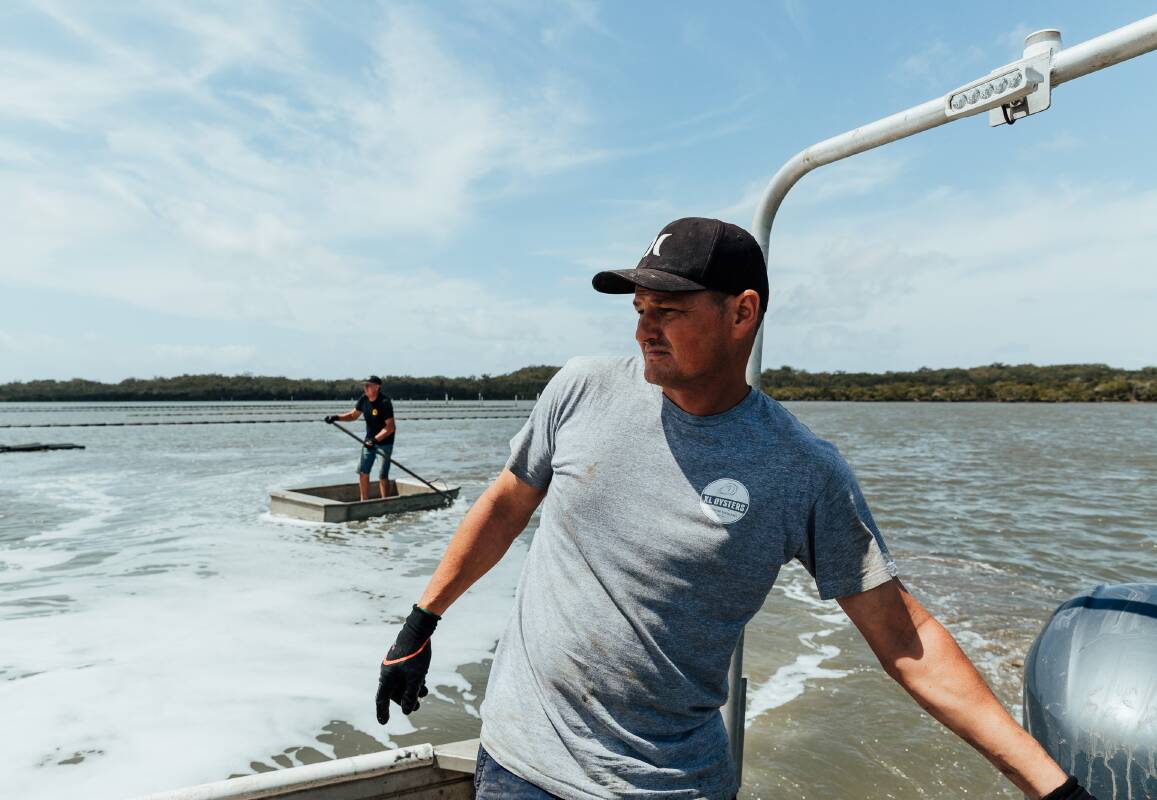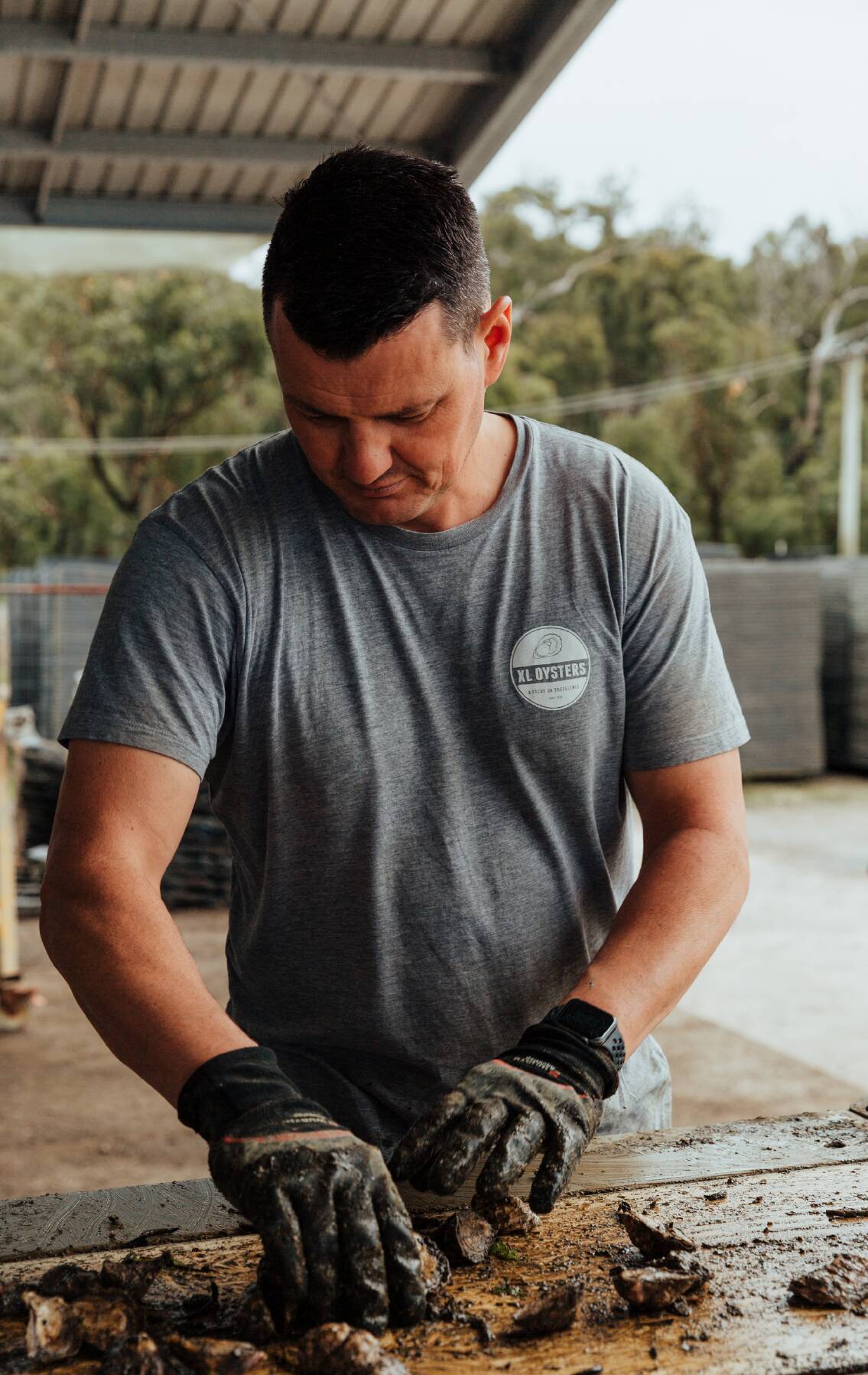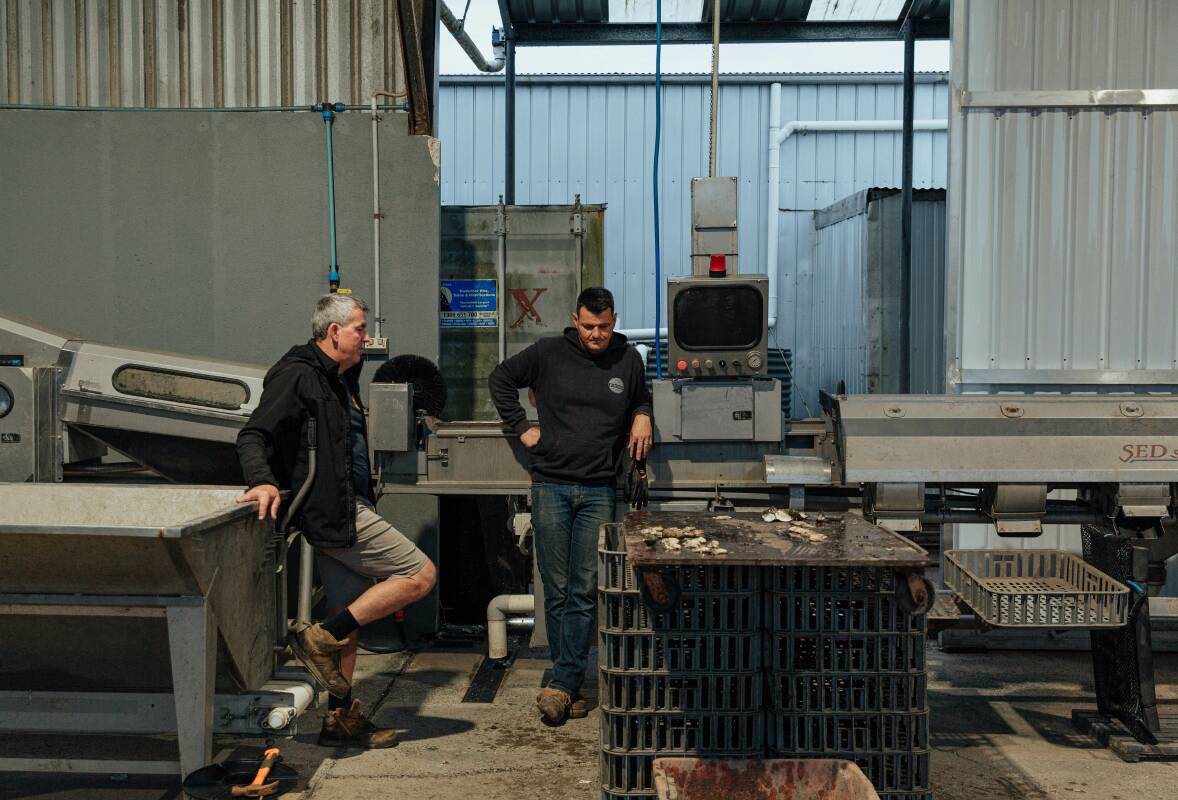





Port Stephens oyster farmers need urgent help from the NSW government or the industry will be wiped out.
An oyster disease outbreak has left the area's 41 farmers on the brink of destruction.
A disease called QX has killed up to 100 per cent of the oysters in some areas.
XL Oysters managing director Matt Burgoyne said it was "a dire situation".
"Unfortunately if the government doesn't step in and help us, the industry will collapse in Port Stephens," said Mr Burgoyne, who is also NSW Farmers Port Stephens oyster branch chairman.
"Farmers have already had to let people go. They're having to find off-farm work because everything is dead."
Long-term oyster industry representative Don Burgoyne said the situation had "come to a head" in the last fortnight when tests showed the disease was widespread "throughout the port".
"It's a disaster and it's devastating," Don Burgoyne said.
The parasite has been killing Sydney rock oysters, so the farmers plan to grow Pacific oysters instead.
"If farmers can get access to disease-resistant Pacific oyster stock, they can restock their farms and have a chance of turning that over in 12 months," Matt Burgoyne said.
"It takes 2.5 years to grow a Sydney rock oyster, which most of us are growing. We're losing stock right now that we could create income off straight away, but we're also losing the next two crops and stuff that's halfway gone. We've lost all the babies as well."
If they could grow the Pacific oysters, the farmers "could be back fully functioning, supporting themselves and on their feet in two years".
"But because we've lost the crops coming up and income, the farmers don't have the money to buy that stock."
The Port Stephens oyster farmers need up to $5 million in support from the NSW government to buy the stock to help them survive.
Port Stephens MP Kate Washington said "the situation is desperate".
"Port Stephens has a proud history of oyster farming, the roots are long and deep," Ms Washington said.
"We have some fifth generation farmers and they cannot see a way forward."
The Port Stephens oyster industry is worth $8.5 million a year, with 41 farms and at least 100 jobs.
NSW Agriculture Minister Dugald Saunders said work was taking place to introduce disease-resistant varieties. However he said this was difficult to do on a commercial scale. There are also disaster assistance grants available to growers.
However, Ms Washington said there was too much red tape to obtain these grants and farmers need help now. "They're getting pushed around," she said. "The money is not getting to them.
"They don't want handouts. They're looking to get disease-resistant Pacific oysters - that's the path forward.
"But they cannot afford that stock to put in the water. It will be at least a year before they would see any return. If there's any chance of recovery, they need to get stock in the water now.
"The grant applications need to be expedited. We've sought some fees to be waived. It all sits on Crown lands, so that should happen now - not in 12 months time."
Ms Washington said she would continue to pressure the government to get immediate help to "ensure the survival of the industry".
Mr Saunders acknowledged there was frustration, and urged farmers to contact the NSW Department of Primary Industries or a rural financial counsellor to find specific help for individual situations.
"It's been a really, really ordinary couple of years for oyster growers," he said. "I know there's significant angst when you're losing oysters and you're not sure what to do. I'm continuing to work with Fisheries, who are working as quickly as they can on disease-resistant material."
Don Burgoyne said little was understood about the parasite, which had "been around a long time".
"It exists up and down the coast. An oyster is like humans. When they get stressed, they get sick easier. It's not a large leap to connect the disease to the stress that has been brought into the system by the extraordinary amount of rain."
He said people should know that the disease does not affect the safety of eating oysters.
Matt Burgoyne said the mental health of farmers was of key importance, given their livelihoods were at risk.
"If they can get that stock, they will make it work. It gives these guys some hope."







